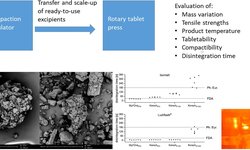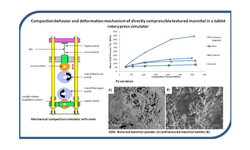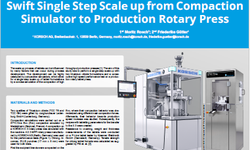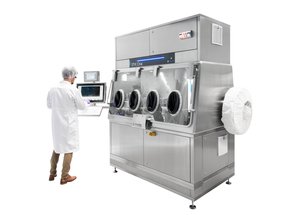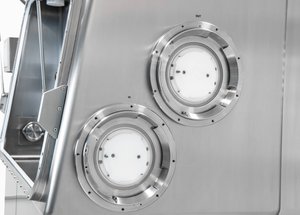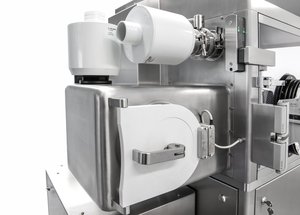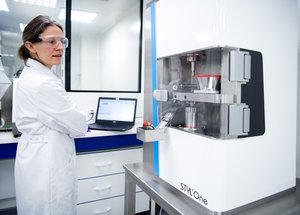Scientific papers
Decreasing tensile strength and prolonged disintegration are linked to internal lubrication. These adverse effects can be mitigated by employing external lubrication. In this present investigation, a compaction simulator was utilized to process six lubricants (magnesium stearate, sodium stearyl fumarate, stearic acid, glyceryl dibehenate, poloxamer 188, and sucrose monopalmitate) through an external lubrication system. The study examined the impact of various process parameters associated with the tableting process (main compaction pressure and tableting speed) and the external lubrication system (spraying time, atomizing pressure, and dust extraction system) on responses. A placebo formulation (80% mannitol – 20% microcrystalline cellulose) was used as the basis for the investigation. Reference internally lubricated blends (0.75 – 4%) were also processed. External lubrication, employing all lubricants, successfully reduced ejection forces while maintaining significantly lower lubricant concentrations compared to internal lubrication. No detrimental effects on tensile strength and disintegration time were observed with external lubrication, regardless of lubricant type. Unlike internal lubrication, where a general decrease in tensile strength and prolonged disintegration was noted, external lubrication exhibited consistent tensile strengths and disintegration times across different lubricants. Furthermore, various lubricant types exerted distinct influences on tensile strength and disintegration. This study underscores the adaptability of external lubrication as an alternative method for pharmaceutical tablet production.
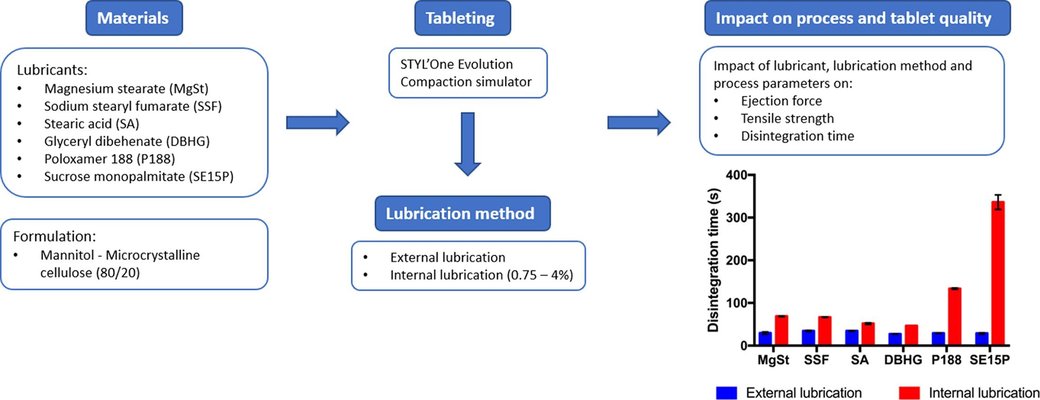
Comments
No comments posted yet.
Add a comment

